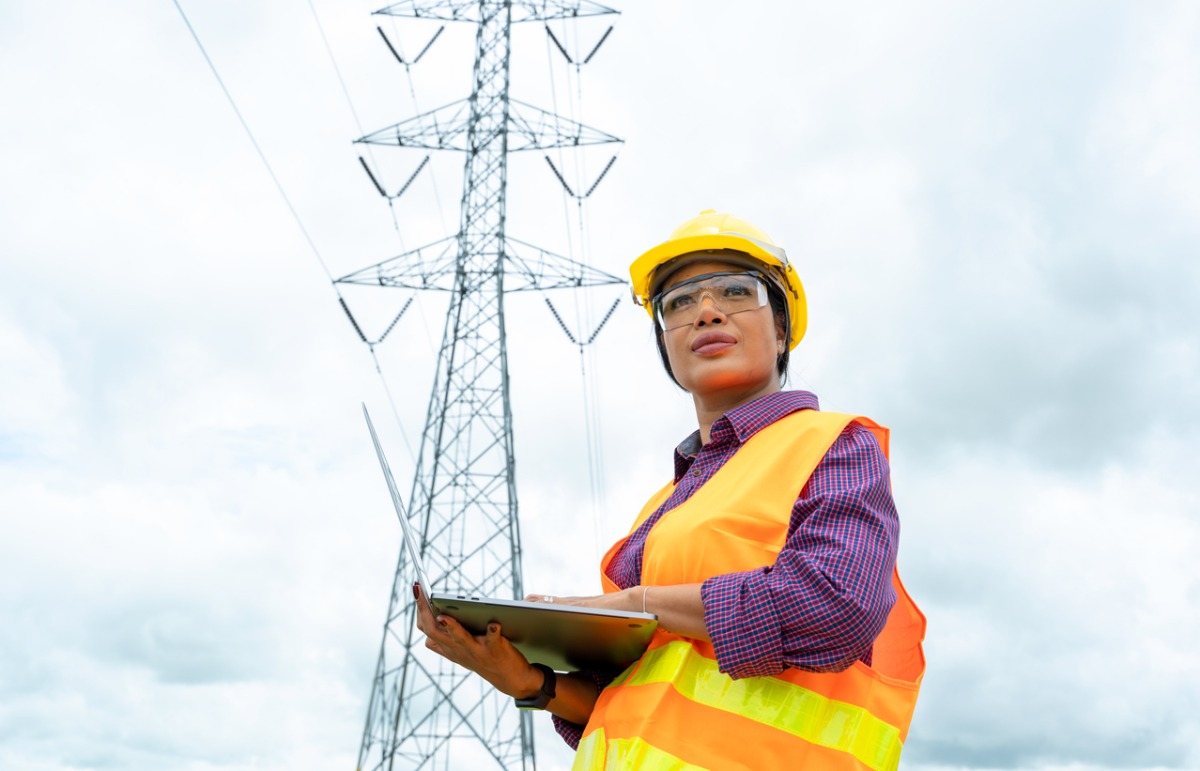By Wendy Jali, Project Officer in the Energy Efficiency programme, SANEDI
Women in Energy
It has been more than a century since electricity was invented, and we have achieved much since Nikola Tesla demonstrated the first polyphase alternating current (AC) electrical system in 1888. Today, we make electricity from wind. We have batteries that can run a house. We have computers that fit in your pocket. Humanity has come a long way yet, somehow, we are still seeing women vastly underrepresented in the energy sector.
A recent study by IRENA found that women make up just 22% of the global energy sector; a trend that I have seen reflected in South Africa’s industry. With women making up 51% of our local population, there needs to be a national focus on changing this trend. The good news is the opportunity is right in front of us.
Just Energy Transition
South Africa is taking steps towards a “Just Energy Transition” – or JET. This transition is defined as a shift from our current energy system to one that is better in terms of sustainability, environmental impact, climate change, human health, economics, employment and social equity. This transition is essential in the South African power sector, which is coal-dominated and, therefore, carbon-intensive. The sector is also male-dominated, and requires the prioritisation of gender mainstreaming initiatives.
There are many initiatives being driven to address the first four elements of the JET – sustainability, environmental impact, climate change, and human health. However, attention must be paid to initiatives which drive economic growth, employment opportunities and social equity. The aforementioned definition makes clear to me that the development of women in the energy industry is paramount in this transition.
I joined the South African National Energy Development Institute (SANEDI) seven years ago, having started my career in a field alternative to energy and engineering. Despite my background in geography and environmental management, I was welcomed into the energy sector. I think this was largely thanks to a common interest in mitigating climate change.
Over my years here, I have been nurtured and supported to a point where I now lead some very important initiatives with SANEDI. While my entry into our male-dominated energy sector was relatively smooth, I know this is not the case for many others. For this reason, we are taking steps to ensure that our initiatives are conducive to encouraging female participation in the sector.
Energy Service Companies (ESCo’s)
Since the register of Energy Service Companies (ESCo’s) was developed in 2017 we have seen impressive growth in the number of ESCo’s that are now part of the register. The ESCo register was established to facilitate the market development and growth of ESCo’s and to assist municipalities participating in government-funded energy efficiency projects, to source reputable energy efficiency service providers who they could trust. However, we saw that female participation within the sector was small, hence as SANEDI we have started an initiative of focusing on encouraging women-owned businesses within the industry to participate in the ESCo industry and we look forward to advancing women-owned businesses. While listing your company and expert services on the register is voluntary, it is increasingly becoming a prerequisite in order to secure work in the energy efficiency sector in South Africa.
Our work in our multiparty International Energy Efficiency (IEE) project and others contributes to gender mainstreaming too, by encouraging female participation in the energy sector. Studies have found that gender diversity often leads to better decision-making, and greater levels of innovation within organisations. At the same time, opening the field to women expands the number of potential new engineers entering the sector and often leads to an improved global image.
The male-dominated energy sector is a narrative that I – and SANEDI – hope to change in the short-term.
*The South African National Energy Development Institute (SANEDI), established by the Government, directs, monitors and conducts applied energy research to develop innovative, integrated solutions to catalyse growth and prosperity in the green economy. It drives scientific evidence-driven ventures that contribute to youth empowerment, gender equity, environmental sustainability and the 4th Industrial Revolution, within the National Development Plan (NDP), through consultative, sustainable energy projects. For more information, go to www.sanedi.org.za.
*Check out the latest edition of the Public Sector Leaders publication here.
For enquiries, regarding being profiled or showcased in the next edition of the Public Sector Leaders publication, please contact National Project Manager, Emlyn Dunn:
Telephone: 086 000 9590 | Mobile: 072 126 3962 | e-Mail: emlyn.dunn@topco.co.za

